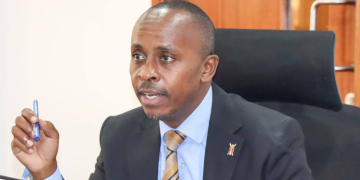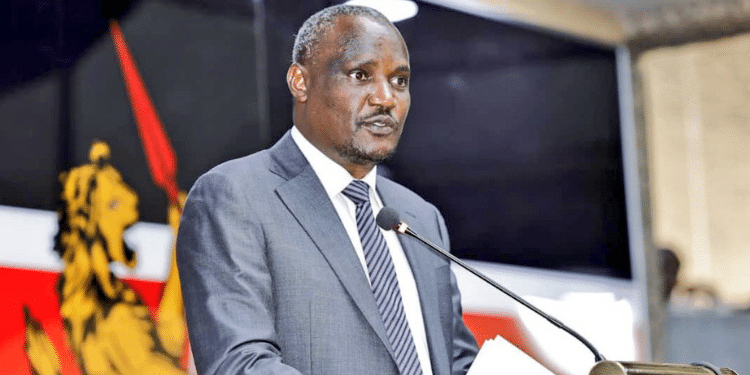National Treasury Cabinet Secretary, John Mbadi, has assured members of the Public that no major job losses have been anticipated in the proposed 2025 Finance Bill and that any government restructuring would be handled fairly and per SEO reforms.
Speaking during a town hall meeting with the youths, CS Mbadi said that those working in parastatals earmarked for merger or dissolution will be re-assigned to other ministries, and that the staff working in those offices will be absorbed elsewhere in government.
“Those who will go home will do so in a structured manner and through agreements,” he added
According to the National Treasury, the Finance Bill 2025 aims to improve the economy and create jobs and could also have some indirect negative impact on employment, particularly in certain sectors.
The removal of certain tax incentives for specific industries had emerged as a leading concern in the proposed Finance Bill, as critics argued that increased tax burden would lead to job losses in the sectors.
In addition, some changes in the bill, like the increase in Fringe Benefit Tax (FBT) could raise costs for businesses, potentially leading to reduced benefits for employees and impacting job satisfaction.
Also Read: Martha Karua Blocked from Entering Tanzania
Unemployment in Kenya
Kenya’s youth unemployment rate stood at a staggering 67%, with many young people, including university graduates, struggling to find employment.
Mental Health issue
In response to the issue of mental health raised by youth in the forum, the CS acknowledged shortcomings in allocations of funds to mental health issues but emphasized that the government is committed to improving mental health services and supporting persons with disabilities.
This year’s bill proposes that the bill may impact on mental health through proposed changes in economic conditions.
In the 2023/2024 financial year, Kenya allocated Ksh 50 million to the Kenya Board of Mental Health.
This funding was designated for training 610 community health workers in mental health interventions under the National Referral & Specialized Services program.
Also Read: Tanzanian Police Break Silence on X Account Hack After Deportation of Kenyan Activists
Despite this allocation, mental health funding remains a small fraction of the overall health budget.
Reports indicate that mental health receives less than 0.01% of the national health budget, highlighting a significant underinvestment relative to the country’s mental health needs.
National Debt
And on matters of National Debt, the CS said that no government can sustain its budget without borrowing, an indication that the government would continue borrowing albeit responsibly.
As of early 2025, Kenya has borrowed approximately Ksh 440 billion between July 2024 and January 2025, increasing the total public debt from Ksh 10.58 trillion in June 2024 to Ksh 11.02 trillion by January 2025.
The debt comprises Ksh 5.93 trillion in domestic debt and Ksh 5.09 trillion in external debt.
Follow our WhatsApp Channel and X Account for real-time news updates.












































































